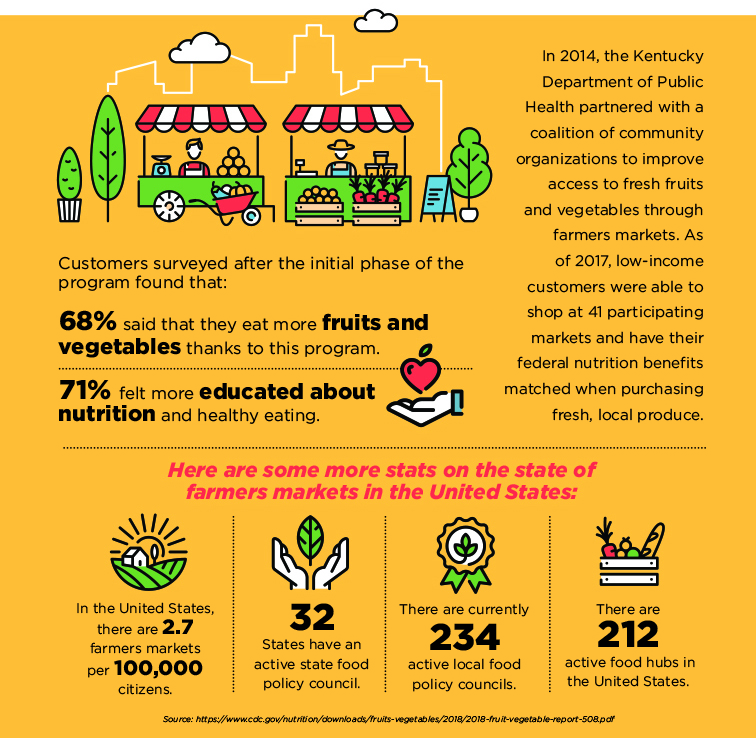Benefits of Farmers Markets
Farmers markets have become increasingly popular in recent years, offering numerous benefits to both consumers and local communities. In this article, we will explore the advantages of farmers’ markets and why they have gained such widespread recognition.
Supporting Local Farmers
One of the primary benefits of farmers’ markets is the direct support they provide to local farmers. By purchasing produce, dairy products, and other goods directly from the farmers themselves, consumers are ensuring that their money goes directly to the people who produce the food. This not only helps to sustain small-scale farmers but also contributes to the local economy.
Fresh and Nutritious Produce
Another significant advantage of farmers’ markets is the availability of fresh and nutritious produce. Unlike supermarket produce that often travels long distances, fruits, and vegetables found at farmers’ markets are typically harvested at their peak ripeness. This means they are packed with nutrients and offer superior flavor. Additionally, farmers’ markets often offer a wider variety of unique and heirloom produce that may not be readily available in traditional grocery stores.
Environmental Benefits
Farmers markets promote sustainable agriculture practices and have a positive impact on the environment. By reducing the distance that food travels from farm to consumer, farmers’ markets help to minimize carbon emissions associated with transportation. Furthermore, many farmers at these markets utilize organic and regenerative farming methods, reducing the use of harmful pesticides and promoting biodiversity.
Community Engagement
Farmers markets serve as a hub for community engagement and social interaction. They provide a space for people to connect with local farmers, learn about the food they consume, and develop a deeper understanding of where their food comes from. Farmers markets often host educational events, cooking demonstrations, and workshops, fostering a sense of community and promoting healthy eating habits.
Supporting Small-Scale Producers
By shopping at farmers’ markets, consumers contribute to the success of small-scale producers who may otherwise struggle to compete with larger corporations. These markets provide a platform for local artisans, bakers, and craftsmen to showcase their products and gain exposure. Supporting these small businesses not only helps to preserve local traditions and culture but also ensures a diverse marketplace for consumers.

Farmers markets offer a multitude of benefits to both consumers and local communities. From supporting local farmers and providing access to fresh and nutritious produce, to promoting sustainable agriculture practices and fostering community engagement, these markets play a vital role in our society. By recognizing and embracing the advantages of farmers’ markets, we can contribute to a healthier, more sustainable, and connected food system.
Frequently Asked Questions
1. What are farmers markets?
Farmers markets are designated locations where local farmers and producers sell their fresh produce, meats, dairy products, and other goods directly to consumers.
2. Why should I shop at farmers markets?
Shopping at farmers markets farmers ‘ local farmers and promoting sustainable agriculture. It also allows you to access fresh, seasonal, and locally grown food.
3. Are the products at the farmers’ market farmers?
Not all products at farmers’ markets are certified organic, but many farmers follow organic practices even if they are not certified. You can always ask the farmers about their growing methods.
4. Are the prices higher at markets compared to supermarkets?
While some products may be slightly more expensive at farmers’ markets the higher quality and freshness, prices are often competitive and reasonable. Additionally, you are supporting local businesses and the local economy.
5. Can I find a variety of products at the farmer’s market?
Farmers markets offer a wide variety of fruits, vegetables, meats, eggs, dairy products, baked goods, honey, preserves, and even handmade crafts.
6. Are farmfarmer’skets only open during the summer?
No, many farmers’ markets operate year-round. Some may have reduced hours or move indoors during the winter months, but you can still find fresh produce and other products.
7. Can I use my EBT/SNAP benefits at farmers farmers?
Yes, many farmers mafarmers’ccept EBT/SNAP benefits. This allows individuals and families with lower incomes to access fresh and healthy food options.
8. How can I find a farmers market near me?
You can search online directories, use mobile apps, or check with your local agricultural extension office or chamber of commerce for a list of farmers’ markets in your area.
9. Are there any health benefits to shopping at farmers?
Markefarmers’pping at farmers’ markets encourages a diet rich in fruits, vegetables, and whole foods. It promotes healthier eating habits, supports local agriculture, and reduces the environmental impact of long-distance food transportation.
10. Can I talk to the farmers and producers directly at farmers’ markets?
Absolutely! One of the main advantages of farmers market farmers is the opportunity to interact with the farmers and producers. You can ask questions about their products, and farming practices, and even get cooking tips.




